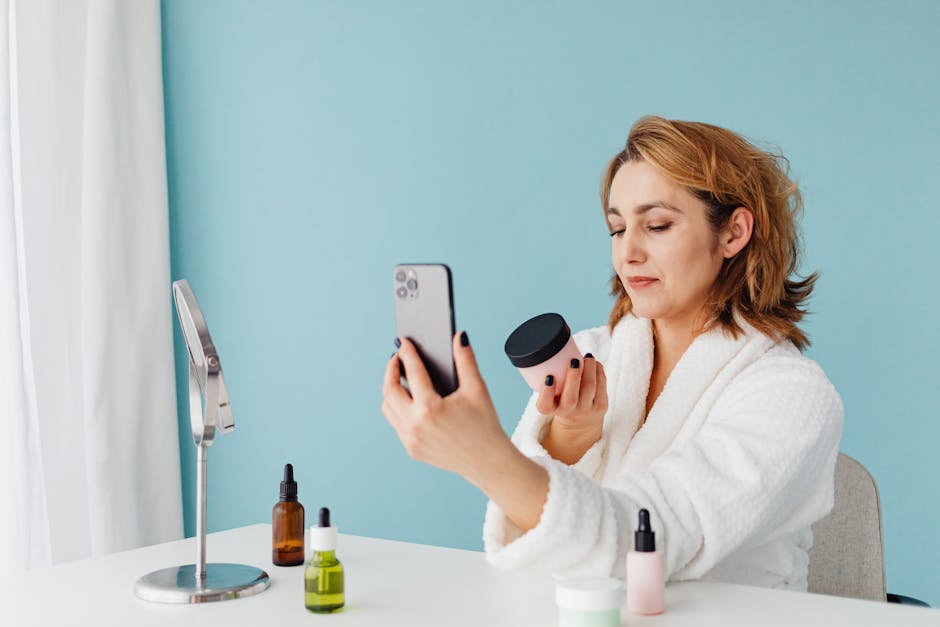The Rise of Influencer-Backed Products
Imagine scrolling through your favorite social media platform and stumbling upon a post by a popular influencer raving about a new skincare product. Intrigued by their glowing review, you decide to give it a try. This scenario is becoming increasingly common as influencers wield their power to not only shape trends and consumer behavior but also to launch their own products.
In recent years, we have witnessed a significant shift in the marketing landscape with the rise of influencer-backed products. From beauty gurus launching their own makeup lines to fitness influencers creating workout programs, these collaborations between influencers and brands have revolutionized the way products are promoted and consumed. But what exactly is driving this trend, and what are the implications for consumers and the industry as a whole?
The Power of Influencer Marketing

Influencer marketing has emerged as one of the most effective strategies for brands to reach their target audience in a more authentic and engaging way. By partnering with influencers who have a loyal following, brands can tap into their influence and credibility to promote products and services. This form of marketing is particularly appealing to millennial and Gen Z consumers who value transparency and authenticity in their interactions with brands.
According to a study by Influencer Marketing Hub, influencer marketing delivers 11 times higher ROI than traditional forms of digital marketing. This statistic underscores the power of influencers in driving consumer behavior and purchase decisions. As a result, brands are increasingly turning to influencers to promote their products and services, leading to the rise of influencer-backed products.
The Evolution of Influencer-Backed Products

Initially, influencers were primarily used as brand ambassadors to promote products created by established companies. However, as influencers gained more visibility and credibility, many of them began to leverage their personal brand to launch their own products. This shift marked a new era in influencer marketing, where influencers became not just endorsers but creators and entrepreneurs in their own right.
One of the earliest examples of influencer-backed products is Kylie Jenner’s cosmetics brand, Kylie Cosmetics. Leveraging her massive social media following, Jenner successfully launched a line of lip kits that quickly became a sensation, selling out within minutes of their release. This success story paved the way for other influencers to follow suit and launch their own product lines.
Today, influencer-backed products span a wide range of industries, from fashion and beauty to fitness and lifestyle. Influencers like Kayla Itsines have created their own workout programs, while beauty influencers like Jeffree Star have launched their own makeup brands. These products not only benefit from the influencer’s endorsement but also reflect their personal style and brand, creating a deeper connection with their audience.
The Impact on Consumer Behavior

The rise of influencer-backed products has had a profound impact on consumer behavior, particularly among younger demographics. Research shows that 70% of Gen Z consumers trust influencers more than traditional celebrities, making influencer marketing a powerful tool for reaching this audience. When influencers endorse a product, their followers are more likely to trust their recommendation and make a purchase.
Moreover, influencer-backed products often resonate with consumers on a personal level. By leveraging their personal brand and story, influencers can create products that align with their audience’s values and aspirations. This authenticity and relatability drive consumer loyalty and engagement, leading to repeat purchases and brand advocacy.
However, the rise of influencer-backed products has also raised concerns about transparency and disclosure. As influencers blur the lines between content creation and advertising, there is a growing need for clear guidelines and regulations to ensure that consumers are not misled by sponsored content. The Federal Trade Commission (FTC) has introduced guidelines requiring influencers to disclose paid partnerships, but enforcement remains a challenge.
The Future of Influencer Marketing

As influencer marketing continues to evolve, we can expect to see even greater collaboration between influencers and brands. Influencers are no longer just content creators but strategic partners who can provide valuable insights into consumer trends and preferences. Brands that invest in long-term relationships with influencers stand to benefit from their creativity, authenticity, and ability to engage with their audience.
Moreover, the rise of new platforms like TikTok and Clubhouse is creating new opportunities for influencers to connect with their followers and promote products in innovative ways. These platforms offer unique features and formats that allow influencers to showcase products in a more interactive and engaging manner, driving higher levels of engagement and conversion.
As the influencer marketing landscape continues to evolve, brands and influencers alike will need to adapt to changing consumer preferences and behaviors. Building trust and authenticity will be key to success in this competitive market, as consumers are increasingly seeking genuine connections and meaningful experiences with the brands they support.
Common Misconceptions
One common misconception about influencer-backed products is that they lack authenticity and are driven solely by commercial interests. While it’s true that influencers collaborate with brands to promote products, many influencers are genuinely passionate about the products they endorse and are involved in the product development process. By leveraging their expertise and personal brand, influencers can create products that resonate with their audience and add value to their lives.
Conclusion
In conclusion, the rise of influencer-backed products represents a significant shift in the marketing landscape, where influencers are not just endorsers but creators and entrepreneurs in their own right. By leveraging their influence and credibility, influencers can launch products that resonate with their audience and drive consumer behavior. While there are challenges and concerns associated with influencer marketing, the potential for authentic connections and meaningful experiences with consumers is vast.
As consumers continue to seek authenticity and transparency in their interactions with brands, influencer-backed products have the potential to reshape the way products are marketed and consumed. By understanding the power of influencer marketing and the impact of influencer-backed products, brands can unlock new opportunities for growth and engagement in an increasingly digital and connected world.
So next time you come across an influencer promoting a product, consider the story behind the product and the journey that led to its creation. You may just discover a new favorite brand or product that resonates with your values and aspirations.




